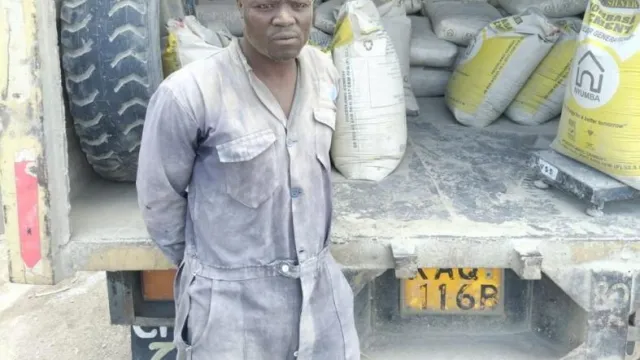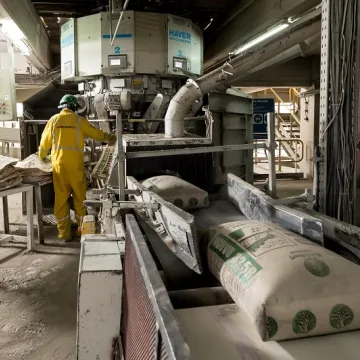Engineers raise red flag over substandard cement in Kenya

Cement bags marked as 50kg have been found to weigh significantly less, some as low as 45kg, shortchanging clients, laments the Institution of Engineers of Kenya (IEK).
The Institution of Engineers of Kenya (IEK) has sounded an alarm over the increasing number of substandard cement in the Kenyan market, attributing the issue to increased cases of collapsing buildings and compromised infrastructure across the country.
"Our members have documented up to 25 percent reduction in the compressive strength of concrete prepared from cement from several brands, undermining the strength and durability of concrete used in construction. This is a grave threat to public safety,” in a statement on Wednesday, May 28, the IEK President, Shammah Kiteme.
"Kenyans have, over time, been concerned by reports of collapsing buildings and compromised infrastructure across the country. IEK notes with concern the worrying trend of the prevalence of substandard cement in the market," Kiteme added.
The institution further revealed rampant fraudulent practices involving cement packaging, saying that some bags of cement advertised as weighing 50 kilograms were significantly underweight.
"Further compounding the issue is the widespread sale of underweight cement, especially in hardware stores and retail outlets. Cement bags marked as 50kg have been found to weigh significantly less, some as low as 45kg, shortchanging clients,” reads the statement in part.
According to IEK, this fraudulent practice is a violation of consumer rights. “We urge the relevant regulatory authorities to intensify market surveillance and spot checks across the country to stamp out this malpractice," the statement added.
IEK then explained that cement plays a critical role in construction and poses dangers when its quality is compromised.
"Cement is the binder in concrete. It is a key chemical component that hydrates in the mixture of fine and coarse aggregates and once it sets, creating strong structures after curing and hardening. When cement is compromised, then life and property are directly at risk from compromised structural integrity," the statement continued.
To address this, IEK is calling for strict enforcement of weight verification, and legal action against individuals involved in undermining material standards.
"Mandatory enforcement of weight verification procedures before cement is dispatched from stores to customers, with penalties for non-compliance," Kiteme stated.
The engineers lobby also called for urgent interventions by the Kenya Bureau of Standards (KEBS), including a countrywide audit of cement manufacturers and penalising distribution outlets that are non-compliant.
"A comprehensive audit of all cement manufacturers and brands in Kenya, including random sampling from hardware stores and distribution points, to independently verify quality and conformity across all cement classes," IEK demanded.
Lastly, the engineers called for a more decisive action against public officials and private players who are perpetrating the circulation of unfit cement.
“Immediate investigation and prosecution of rogue individuals, including public officials and private sector players, who are complicit in compromising the quality and standards of construction materials in Kenya.”





